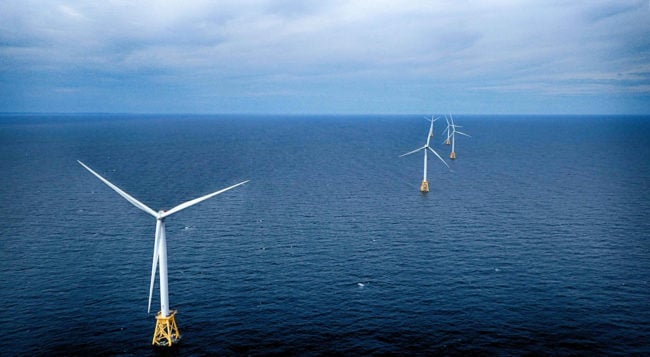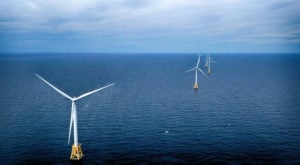New York can “go bigger” on clean energy in 2018


View more images on our Flickr site
The Yale Environmental Protection Clinic — an interdisciplinary clinic that addresses environmental law and policy problems on behalf of client organizations — carried out a study for Riverkeeper to assess where we should focus our efforts in the energy field. This blog is a summary of their findings jointly authored by the lead students on the study.

In light of the manifest need to cut carbon dioxide and other greenhouse gases like methane, it is clear that New York needs to go further than ever before to establish the Empire State as a national leader in clean energy and reduce our reliance on fossil fuel-generated power. In 2016, Governor Cuomo set an ambitious goal of reducing fossil fuel-based power by 50 percent between now and 2030. Consistent with this goal, Riverkeeper believes that no new fossil fuel infrastructure should be permitted in New York. Instead, the state needs to make a significant new commitment to clean power and energy efficiency.
To help turn the page for New York’s clean energy future, Riverkeeper sought consultation from the Yale Environmental Protection Clinic, requesting that we identify clean energy opportunities and develop an advocacy road map to achieve their fulfillment. After thorough examination of the political and policy frameworks surrounding clean energy, we provided detailed recommendations to address New York’s three greatest clean energy opportunities: efficiency, storage, and transmission & distribution infrastructure:
1. Setting an energy efficiency mandate & incentive policy package. Energy efficiency measures have lagged in New York State, despite being the “lowest hanging fruit” to create jobs, lower electricity bills, and reduce greenhouse gas emissions. New York State Senate Bill 6771, introduced by Sen. David Carlucci, would set a mandate for utilities to achieve energy efficiency as a percentage of sales. Similar mandates have seen great success in Massachusetts and Rhode Island, and Riverkeeper should work with its partners to effectuate the same success in New York. To help utilities comply with such an energy efficiency mandate, Riverkeeper should advocate in parallel for financial incentives mechanisms tied to savings achieved. Additionally, it is possible that the expansion of the stakeholder group called the Clean Energy Advisory Council to add consumer advocates would help drive each utility to develop meaningful energy efficiency plans.
For New York City’s part, it should be challenged to match Los Angeles’ energy efficiency target of reducing its energy usage by 15%, which will be achieved through rebates, incentives, and customer education. Moreover, creation of community partnerships between the city and utilities would give city officials more influence on deployment of energy efficiency measures.
2. Developing a strong energy storage target. Governor Cuomo recently signed a bill directing the New York State Energy Research and Development Authority (NYSERDA) and Department of Public Service to set a target for storage. Riverkeeper and others should actively participate in the development of these targets. Riverkeeper should also weigh in on the “Value of Distributed Energy Resources” docket to help develop a more realistic valuation and compensation for storage that considers its benefits for reducing peak demand and incorporating renewable energy sources. Riverkeeper should also advocate for NYSERDA to develop an energy storage road map to remove barriers preventing development of storage.
3. Supporting ongoing enhancement of New York’s transmission grid to create jobs, reduce congestion, and improve resilience. New York’s electric grid is old and congested, especially between Northern and South Eastern New York. The congestion hampers development and distribution of clean energy. Riverkeeper should support efforts to bring the Empire State’s transmission and distribution infrastructure into the 21st century. Consumer education will be key to helping stakeholders take advantage of modernizing technologies.
It is important to consider that while transmission is key to making clean energy projects viable, it also has potential consequences for local landowners, communities and the environment. To reduce impacts and speed up approval processes, clear, fair policies for smart planning and routing are crucial.
4. Partnerships are vital. Overall, it is clear that if Riverkeeper hopes to advance development in any of these areas, it will need to collaborate with its partners, its members, and the public.
New York State has had a trend of policy making through the executive branch, which in most circumstances favors a market-based approach, but the imperfections in these markets serve as a barrier for sorely needed innovation. Governor Cuomo’s 2018 State of the State proposals leave room to add mandate-based approaches where the market has failed New Yorkers. Among many other things, Governor Cuomo has committed to:
- Setting an energy efficiency target for New Yorkers by Earth Day 2018; and
- Building 1,500 megawatts of storage by 2025, with $260 million in dedicated funding.
These are important commitments, and now we need Governor Cuomo to “walk the walk.” As the state is still formulating the details of these policies, there is an important opportunity for Riverkeeper and its partners to help shape them. Riverkeeper should use this time to push for a strong efficiency target and demand that the state set mandatory minimums for utilities to implement energy efficiency. And Riverkeeper should seek to reduce barriers preventing the build-out of energy storage while supporting environmentally beneficial projects.
There is a direct need for Riverkeeper, in conjunction with partners and citizens across the state, to wage a campaign for clean energy. With the Governor’s renewed focus on climate initiatives, this is the perfect time for Riverkeeper to levy its legal, media, and community outreach expertise to fight for a smarter, cleaner energy grid.
